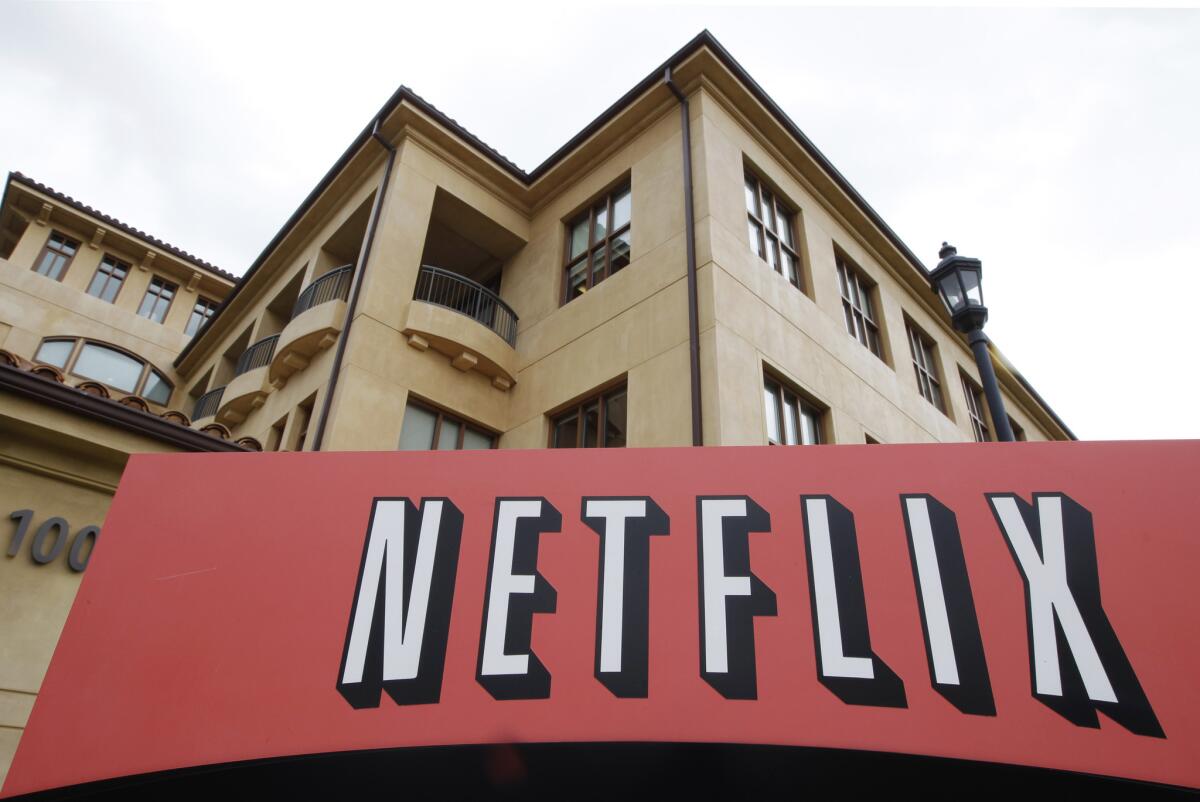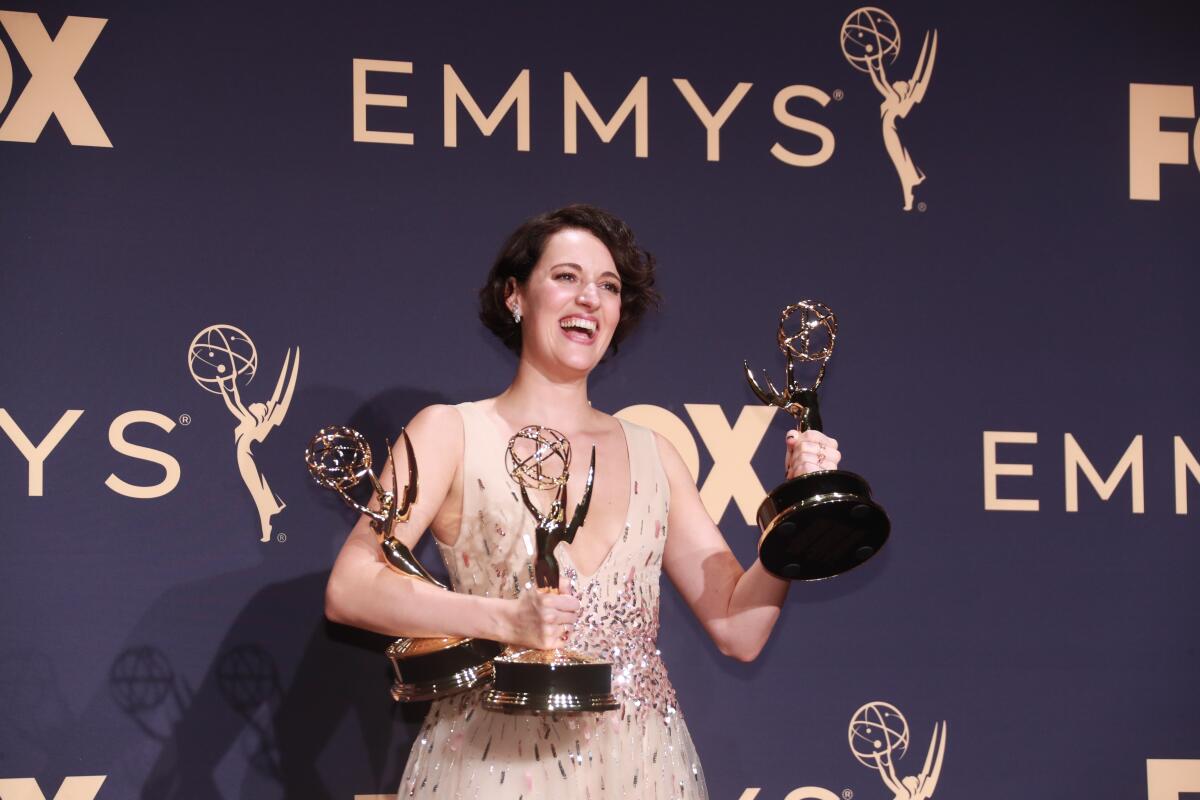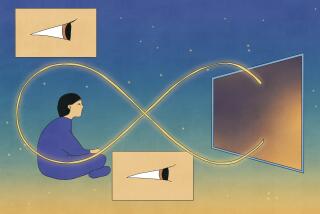Oversubscribed! Wasn’t cord-cutting supposed to streamline our lives?
This story is part of a Times series on the great streaming wars of 2019. Click here to read the rest of our coverage of Disney +, Apple TV +, HBOMax and more.
Time flies when you’re upending an industry, destroying a business model and drowning an unsuspecting populace in content.
It may feel as if streaming has been with us forever, but it was just seven years ago that Netflix test-ballooned its first “exclusive” series, the Norwegian-produced “Lilyhammer,” and only six years since it threw “House of Cards” down like a gauntlet. For its first original scripted series, Netflix recruited director David Fincher (“The Girl With the Dragon Tattoo,” “The Social Network”) and A-list stars Robin Wright and then-still-much-beloved Kevin Spacey. Netflix made Spacey its unofficial spokesman, taking him on a prelaunch grand tour to declare that streaming was the future of television.
That same year, Amazon countered with the gimmick of posting 14 pilots, allowing viewers to vote on which ones should be ordered to series. Two years after that, HBO launched a stand-alone streaming service, HBO Now, after swearing it would never do such a thing. Hulu had gotten into the original content game in 2012, but no one really started paying attention until 2015, when it picked up canceled fan fave “The Mindy Project.”
And it was just four years ago that John Landgraf, FX president and unofficial mayor of television, declared we had hit “peak TV,” a quote that would come to haunt him as the amount of screen content continued to rise to menacing heights, like water in the final shot of “The Last Wave.”

In 2019, of course, few younger than 30 watch television in real time, and many of us cannot remember what day or time slot our favorite show occupies on linear TV. We’re all too busy chasing down the new full-series dumps on streaming services or waiting for some broadcast show to move to a streaming service and trying to figure out what streaming service that will be.
Those services, meanwhile, are multiplying faster than Dick Wolf’s “Chicago” franchise, recruiting writers with a rigor that makes the NBA look like a bunch of half-interested stoners, while continuing to spit out new 10-episode series practically every three minutes. Ten episodes you are expected to gulp down in a few days. It takes only two of these to add up to almost the same amount of time a person used to spend watching a show over the better part of a year. A year!
If someone said, “Hey, here’s the entire season of ‘ER’ and you’d better watch it in four days because 20 episodes of ‘Friends’ and ’30 Rock’ are also available soon,” would George Clooney even be a movie star? Think about it.
And original content is no longer enough, oh no. Now every entertainment company wants to become TV’s Bodleian Library, clawing back their own properties and competing to stock their collections with classics like “Seinfeld” and “Friends” in a teeth-bared, multimillion-dollar-contract way.
Hence all the new platforms with names that weirdly evoke feminine hygiene products: AT&T+, HBO Max, Disney Plus. You know, for those days when your streaming flow is really heavy.

Which is most days. The Netflix model, which made life easier such a short time ago, has turned television into a cultural tyrant, an ever morphing monster you must keep up with, like fashion or restaurants or Apple products. Oh, for those lazy days when we merely struggled to keep up with all the new shows; now we have to figure out which platform we need in order to watch those shows.
And few of those platforms are free, by the way; the public does not own the internet the way it does the airwaves. Remember when we were all going to save a bundle by unbundling? Now, faced with 20 bucks here, 15 bucks there, all of it subject to change, of course, it’s enough to make a person wonder if all those cords can be patched up with a little duct tape.
Obviously, from a viewing standpoint, this is a quality problem. Like the absolute, iron-clad definition of a quality problem. And for the record, when one of those streamers decides to take the $300 million it was going to give to the next hot showrunner so he or she could make more television that we do not have time to watch and donate it to people who can’t afford to worry about the content revolution because they are too busy trying to buy food or shelter or escape violence of any sort, I will be the first to subscribe, and give subscriptions to all my friends. Honest to God.
Right now it feels like glory days, with money being splashed around, the cineplex suffering and playwrights ditching New York in droves because, you know, television. But even I, with my very basic understanding of economics, realize that the center cannot hold.
Some of these platforms are going to fail. And then what?
Are all those playwrights going to give up their sunshiny houses and lawns and move back to New York? I don’t think so.
Even if every episode of every show becomes available to our swipe-ready finger tips, that doesn’t really help because who can keep track?

You want to know why “Fleabag” won all those Emmys? Obviously it was a very good show, but there are a lot of very good shows. It won because it dropped a week or so before Television Academy members had to vote. Which meant they could actually remember how good it had been, unlike many of the 3,687 other shows that had dropped previously on 192 different platforms. Remember when we were all talking about “Russian Doll”?
There are simply not enough hours in the day to keep up with all the new content, never mind the old. I recently resolved to catch up with “Peaky Blinders” only to be confronted with the fact that I was four seasons behind.
Four seasons! I would need a major bout of the flu or at least minor surgery to free up that kind of time in my life.
I can’t help but think that people flocked to see “Downton Abbey” in theaters not just because they loved the show but also because, thankgodalmighty, it was only a movie. A story that began and ended in just a little over two hours. The luxury! You could watch that and then squeeze in time to maybe read a magazine.
You can cut all the cords you want, but whatever personal device you prefer is fast becoming yet another depository of bundles. No TV is smart enough to keep up with the whats and the wheres (never mind the whys), leaving even the most savvy viewer stuck with “how?”
As in, “How am I ever going to figure out what to watch now ... and maybe I‘d better just read a book.”
More to Read
The complete guide to home viewing
Get Screen Gab for everything about the TV shows and streaming movies everyone’s talking about.
You may occasionally receive promotional content from the Los Angeles Times.







